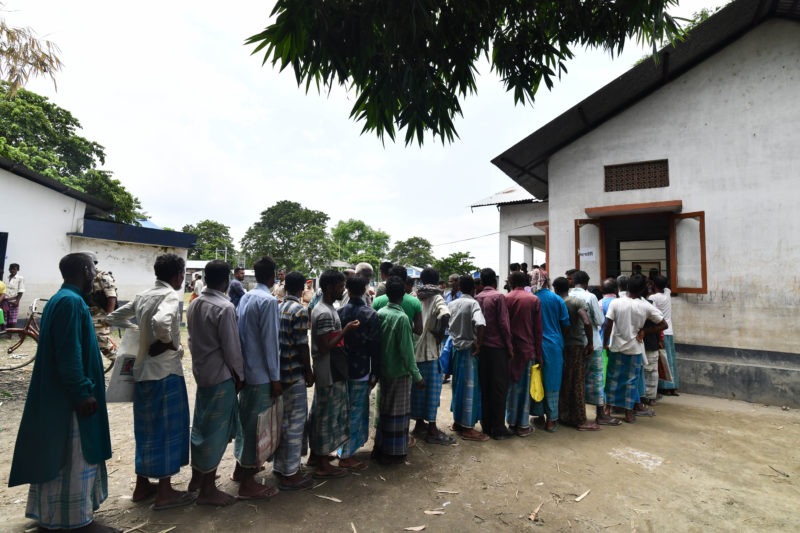India defends citizenship register after UN criticism
Assam residents stand in line to check if their names are included on the final list of the National Register of Citizens (Biju BORO)
Guwahati (India) (AFP) – India’s foreign ministry has again defended a controversial citizenship register in northeast Assam after criticism from the United Nations, saying the almost two million people excluded from the list would not become “stateless”.
The National Register of Citizens (NRC) was drawn up by India’s ruling Bharatiya Janata Party (BJP) — which also runs Assam state — saying it was necessary to detect “foreign infiltrators”.
Critics say it is being used by the BJP to push a Hindu nationalist agenda and marginalise the state’s large minority of Muslims — many who fled there when East Pakistan broke violently from Islamabad in 1971 to become Bangladesh.
Filippo Grandi, the UN High Commissioner for Refugees, had on Sunday called on New Delhi to avoid stripping people of their nationality, saying it “would be an enormous blow to global efforts to eradicate statelessness”.
But foreign ministry spokesman Raveesh Kumar defended the process, saying the NRC “does not make the excluded person ‘stateless'” and any decisions taken would be consistent with Indian laws and its “democratic traditions”.
“It (the NRC) also does not make him or her a ‘foreigner’, within the legal meaning of the term,” Kumar said in a statement released late Sunday.
“For those who are not in the final list, (they) will not be detained and will continue to enjoy all the rights as before till they have exhausted all the remedies available under the law.”
Assam is largely surrounded by Bangladesh and has long seen influxes of migrants — even during Britain’s colonial rule.
But under the NRC, only those who can demonstrate they or their forebears were in India before 1971 can be included in the list.
Those left off have 120 days to appeal at so-called Foreigners Tribunals, and can also appeal their case through the courts.
Critics have said the NRC process reflects the BJP’s goal to serve Hindus, with a large chunk of those excluded expected to be Muslims.
But there has been growing outrage among local BJP leaders, who claim many Bengali-speaking Hindus — a key vote bank for the party — had also been left off the list.
It is not yet clear what will happen to people who have exhausted their legal avenues. In theory, they can be placed in one of six detention centres with a view to possible deportation to Bangladesh.
Dhaka has said previously the NRC is an “internal matter” for India and none of its citizens had moved across the border since 1971.
Disclaimer: Validity of the above story is for 7 Days from original date of publishing. Source: AFP.


